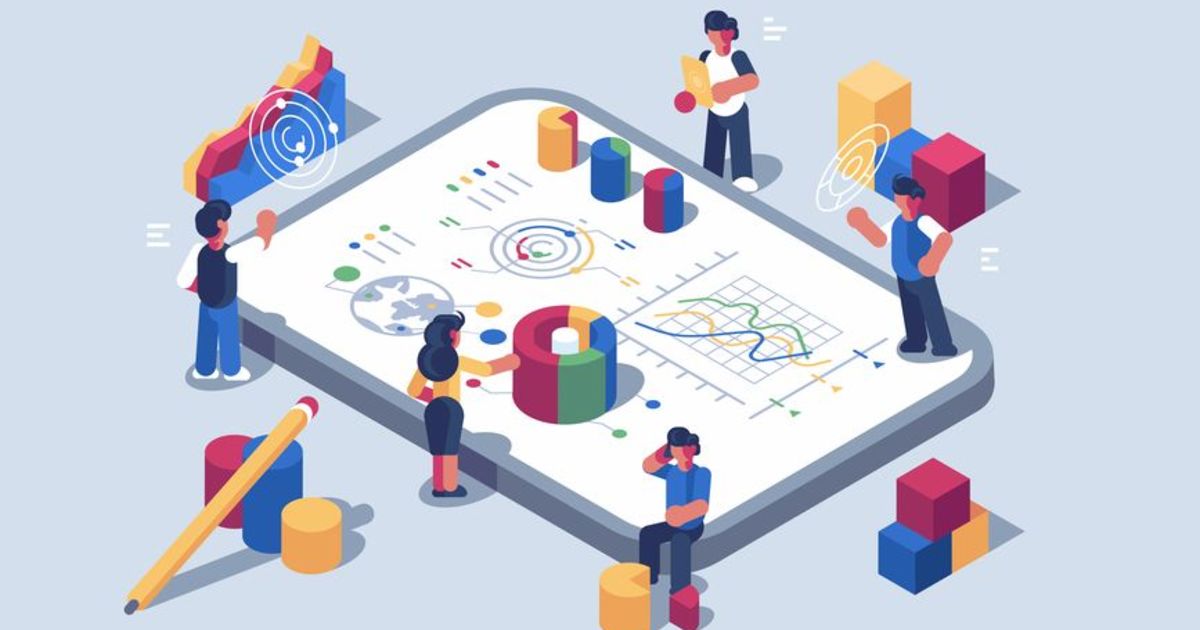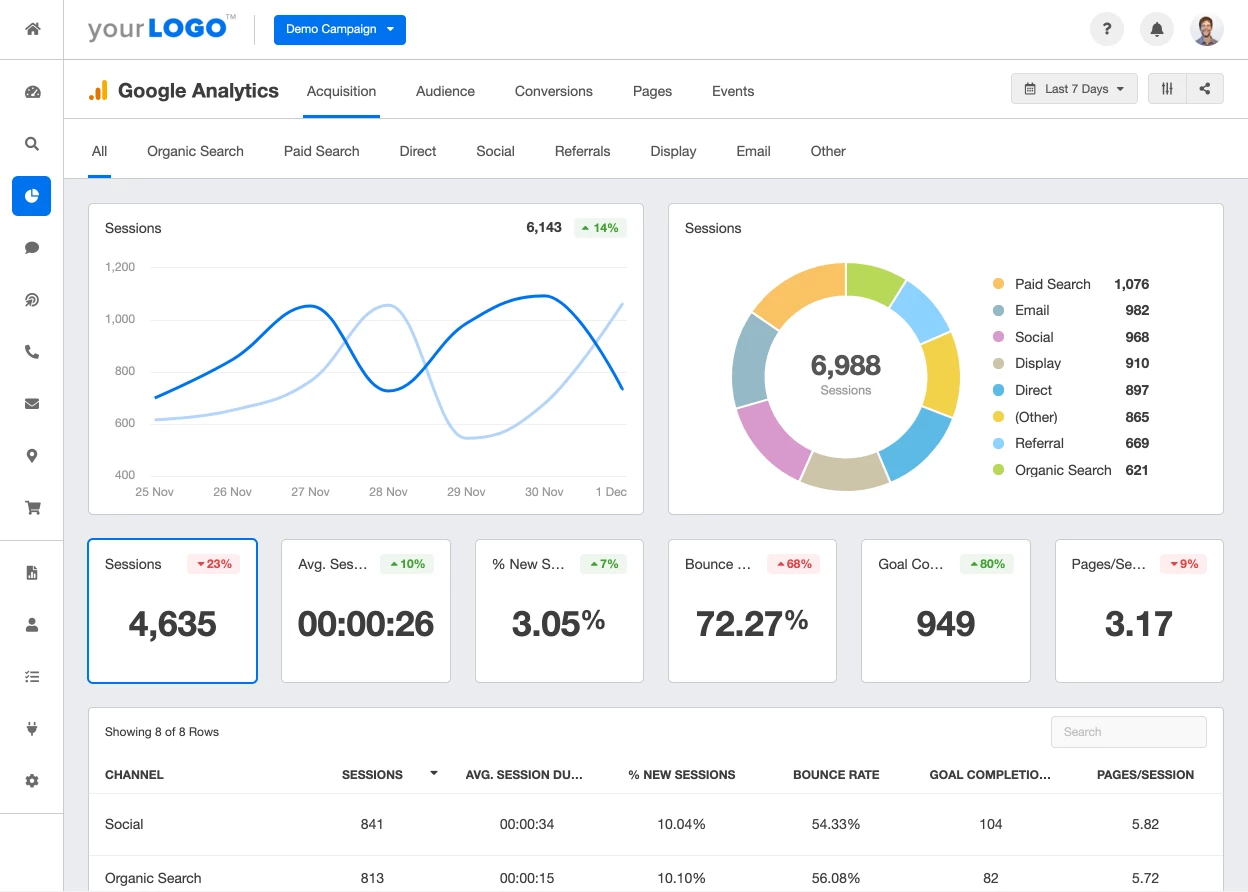Transform Information Into Choices With Powerful Analytics Solutions
In today's data-driven landscape, companies encounter the challenge of transforming vast quantities of details into actionable insights. Effective analytics options provide the means to browse this complexity, allowing businesses to employ different techniques that disclose underlying patterns and forecast future problems. As companies progressively depend on these data-driven methods, the capacity for boosted decision-making emerges. However, the execution of these services increases important concerns about finest practices and the concrete benefits that can be acquired. What methods can organizations adopt to guarantee they are optimizing their logical capabilities?
Understanding Analytics Solutions
In today's data-driven landscape, lots of organizations look for to utilize analytics solutions to improve decision-making and drive tactical campaigns. Analytics services encompass a large array of methods and tools designed to analyze information, remove insights, and support educated decision-making. These services can be classified into descriptive, diagnostic, anticipating, and authoritative analytics, each offering a distinct function in the data evaluation procedure.
Descriptive analytics concentrates on summarizing historic data to identify trends and patterns, giving a foundational understanding of past performance. Diagnostic analytics goes a step even more by investigating the factors behind these trends, providing much deeper insights right into domino effects. Predictive analytics uses statistical designs and equipment understanding methods to forecast future outcomes based upon historical information, making it possible for companies to prepare for market shifts and consumer habits.
Lastly, authoritative analytics suggests actions based on anticipating insights, assisting organizations make informed selections that straighten with their tactical goals. As companies increasingly recognize the worth of information, recognizing these different sorts of analytics solutions ends up being necessary for harnessing their full possibility. By successfully implementing these services, firms can change raw data into actionable insights that educate their organization methods and boost total efficiency.
Key Benefits of Data Analytics
Taking advantage of the power of information analytics offers organizations a wide variety of benefits that can considerably boost their functional performance and affordable benefit. Among the key advantages is enhanced decision-making. By transforming raw data right into workable understandings, companies can make informed options that line up with their critical goals.
In addition, information analytics allows companies to determine trends and patterns that may not be right away evident. This foresight enables businesses to anticipate market needs, enhance source allowance, and mitigate risks efficiently. Furthermore, boosted client insights originated from information analytics empower companies to tailor their product or services, resulting in boosted customer satisfaction and loyalty.
Price decrease is another important benefit, as analytics can simplify operations and identify ineffectiveness, bring about improved efficiency. Moreover, organizations can take advantage of anticipating analytics to anticipate future end results, facilitating positive techniques rather than responsive measures.
Ultimately, the integration of data analytics cultivates a society of continual renovation, urging companies to improve procedures and introduce. By embracing information analytics, organizations not only enhance their operational capabilities but additionally place themselves as leaders in their corresponding sectors, all set to flourish and adapt in a vibrant service atmosphere.
Sorts Of Analytics Techniques
Information analytics strategies are frequently classified into four major kinds: descriptive, diagnostic, anticipating, and authoritative analytics. Each of these techniques offers a distinct objective in the information analysis process, making it possible for organizations to remove meaningful understandings.
Detailed analytics concentrates on summing up historic information to recognize patterns and patterns. It provides a clear review of what has happened, often utilizing metrics such as standards and portions to notify stakeholders.
Diagnostic analytics goes an action further by discovering the reasons behind past end results. This strategy utilizes strategies such as information mining and connection evaluation to discover relationships and aspects that may have affected outcomes.
Anticipating analytics leverages statistical designs and device understanding algorithms to anticipate future events based upon historical information. Organizations can anticipate patterns and actions, helping with aggressive decision-making and risk management.
Lastly, authoritative analytics recommends actions based upon data understandings, helping organizations maximize processes and resource appropriation. By mimicing numerous situations, this strategy identifies the very best strategy, eventually assisting calculated preparation.
Together, these analytics types allow organizations to transform raw data into actionable insights, cultivating educated decision-making and driving operational efficiency.
Executing Analytics in Service
Reliable implementation of analytics in service is crucial for gaining an one-upmanship in today's data-driven landscape. Analytics. To effectively integrate analytics into operations, organizations should first determine clear goals that line up with their calculated goals. Establishing certain, quantifiable results makes certain that analytics initiatives directly add to service efficiency
Following, purchasing the right technology is essential. Organizations ought to evaluate their current data infrastructure and select analytics tools that promote information collection, handling, and visualization. This includes employing advanced technologies such as artificial intelligence and expert system to improve predictive capabilities.
In addition, cultivating a data-driven society within the organization is important. This involves training employees their website to recognize and use analytics tools effectively, allowing them to make educated choices based upon information insights. Leadership needs to motivate collaboration among divisions to make sure that analytics initiatives are incorporated across all business features.
Study of Effective Analytics
Successful analytics implementation can be observed via different case research studies that demonstrate the transformative influence of data-driven decision-making. One significant example is Netflix, which makes use of advanced anticipating analytics to evaluate visitor choices and seeing patterns. By leveraging this information, Netflix has efficiently tailored its material offerings, resulting in boosted individual engagement and subscription development.
Another compelling instance is that of Starbucks, which adopted location-based analytics to enhance its shop placements (Analytics). By assessing a fantastic read market information, customer habits, and market fads, Starbucks purposefully placed brand-new shops to take full advantage of foot website traffic and earnings. This data-driven strategy has significantly boosted its market presence

These situation research studies highlight that when companies harness the power of analytics, they can make informed choices that drive development, boost consumer satisfaction, and improve operational efficiencies. As more businesses recognize the relevance of data-driven approaches, the possibility for transformative end results proceeds to broaden, leading the method for innovative solutions across sectors.
Verdict
In verdict, the assimilation of effective analytics services transforms data into workable understandings, substantially improving organizational decision-making procedures. By using different analytics methods, organizations can uncover valuable trends, identify inadequacies, and anticipate future end results. The effective application of these solutions cultivates a society of development and continuous renovation, eventually driving growth, enhancing consumer fulfillment, and improving procedures. Accepting data-driven techniques is essential for companies intending to remain affordable in a progressively data-centric landscape.
Predictive analytics uses statistical designs and equipment knowing strategies to forecast future results based on historic data, allowing organizations to expect market changes and customer behavior.

Organizations needs to assess their current data infrastructure and select analytics devices that facilitate information collection, handling, and visualization.